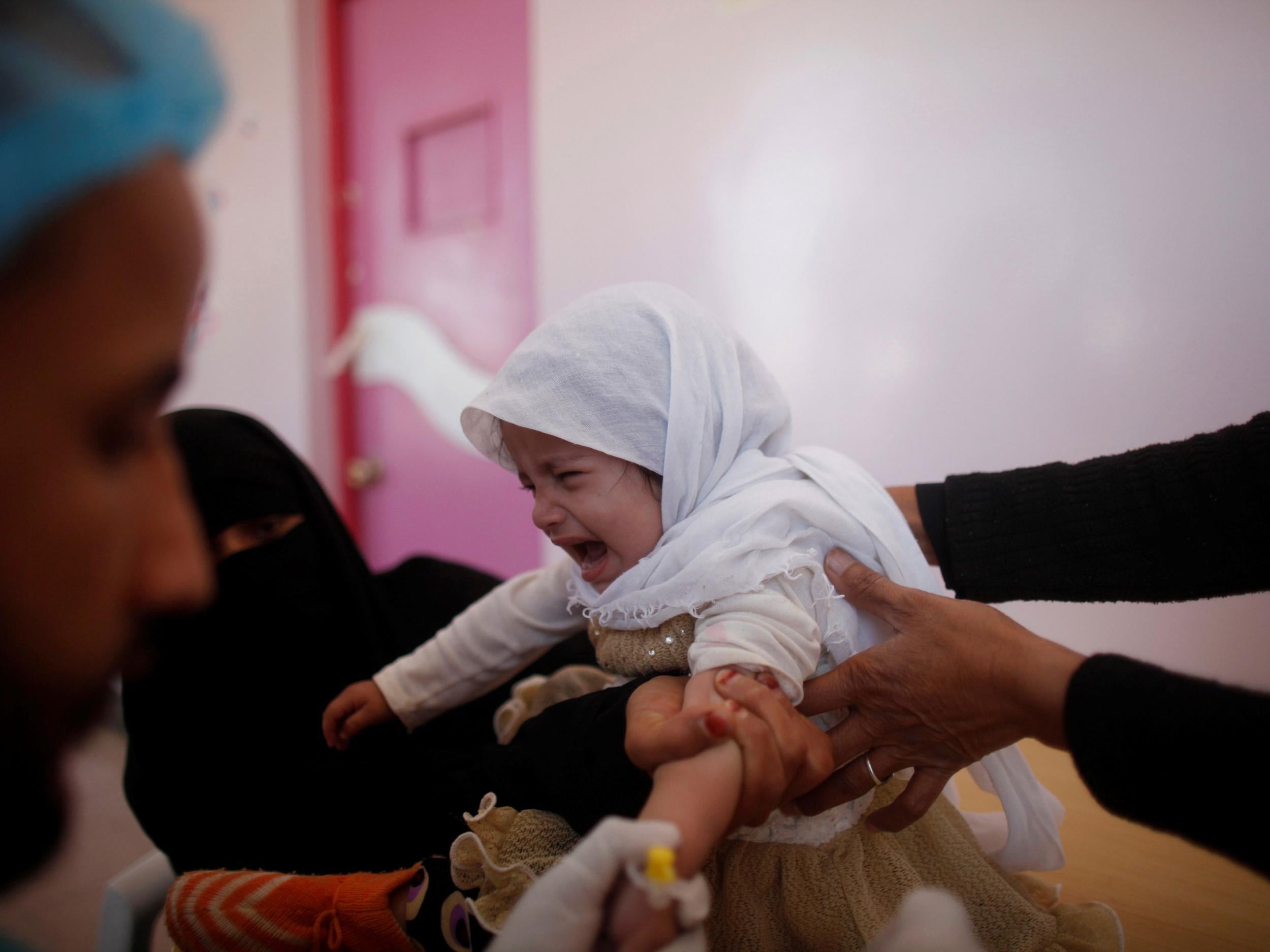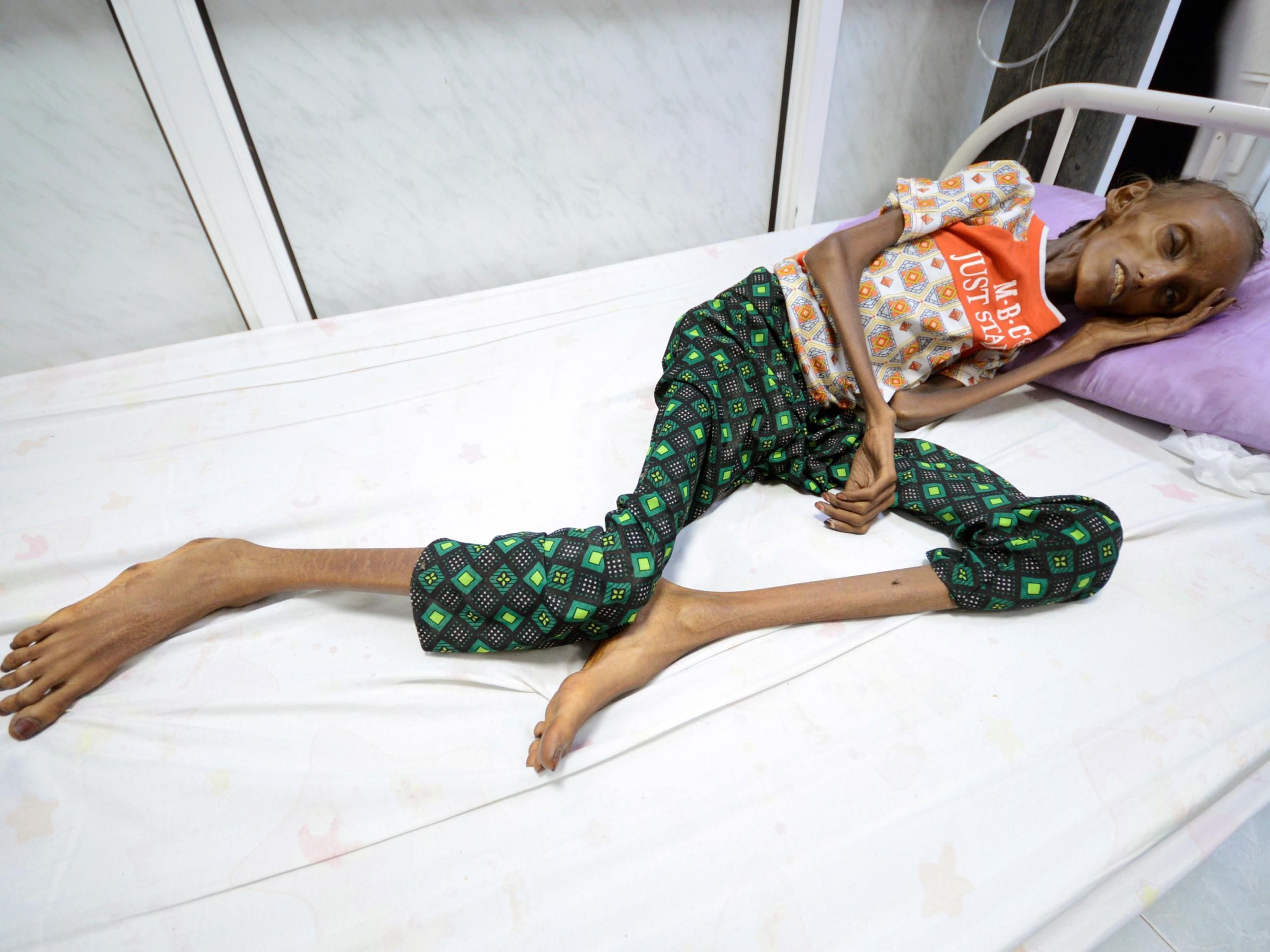Cholera cases soar in war-torn Yemen amid widespread starvation as Saudi bombing campaign continues
World Health Organisation fears the illness could affect up to 76,000 people

Your support helps us to tell the story
From reproductive rights to climate change to Big Tech, The Independent is on the ground when the story is developing. Whether it's investigating the financials of Elon Musk's pro-Trump PAC or producing our latest documentary, 'The A Word', which shines a light on the American women fighting for reproductive rights, we know how important it is to parse out the facts from the messaging.
At such a critical moment in US history, we need reporters on the ground. Your donation allows us to keep sending journalists to speak to both sides of the story.
The Independent is trusted by Americans across the entire political spectrum. And unlike many other quality news outlets, we choose not to lock Americans out of our reporting and analysis with paywalls. We believe quality journalism should be available to everyone, paid for by those who can afford it.
Your support makes all the difference.The number of suspected cholera cases in war-ravaged Yemen has ballooned to more than 1,400 in under three weeks, according to the World Health Organisation.
An outbreak of the deadly disease was announced in early October in the capital Sanaa, but WHO officials said soon after that it had not spread.
However, the organisation has now announced that there were 1,410 suspected cholera cases in 10 of Yemen’s 23 governorates, mostly in Taiz, Aden, Lahj, Hodeida and Sanaa.
The organisation has released $1m (£820,000) of emergency funding to help combat the illness. More than 7.6 million people are living in the areas affected by cholera.
The water-borne disease can advance quickly when infrastructure is damaged and clean water is hard to come by, as is the case in Yemen.
If unchecked, the illness could affect up to 76,000 people, with more than 15,000 severe cases requiring medical admission, the WHO predicted.
A rapid proliferation of the disease would add a further dimension to the complex humanitarian crisis gripping the country.
Malnutrition, also a problem, wears down the immune system and makes people, especially youngsters, much more vulnerable to disease.
The world was shocked by images of 18-year-old Saida Ahmad Baghili as she lay on a bed in the Red Sea city of Hodeida, severely malnourished.

Fourteen million people are hungry, particularly in remote areas, and 370,000 children starving, according to Unicef estimates. There are fears of famine in many provinces.
Much of the hunger is because of a blockade – Yemen used to import the majority of its food – and a bombing campaign by the Saudi Arabia-led coalition fighting in the country.
Yet peace and recovery is unlikely to be reached soon. On Saturday, President Abedrabbo Mansour Hadi, who is in exile, rejected a peace proposal submitted by the UN envoy, Ismail Ould Cheikh Ahmed, aimed at ending the war.
The details of the peace proposals were not released but sources said it called for an agreement on naming a new vice-president after Houthi rebels withdrew from the capital Sanaa and other cities and handed over heavy weapons to a third party.
Mr Hadi would then transfer power to the vice-president who would appoint a new prime minister to form a government in which the north and south of Yemen would have equal representation.
A statement on a government website quoted Mr Hadi as saying the roadmap “only opens a door towards more suffering and war and is not a map for peace”.
The Houthis, backed by Iran, have been fighting Yemeni government forces, backed by the coalition, since 2015. Thousands of people have been killed and millions displaced.
Subscribe to Independent Premium to bookmark this article
Want to bookmark your favourite articles and stories to read or reference later? Start your Independent Premium subscription today.
Join our commenting forum
Join thought-provoking conversations, follow other Independent readers and see their replies
Comments